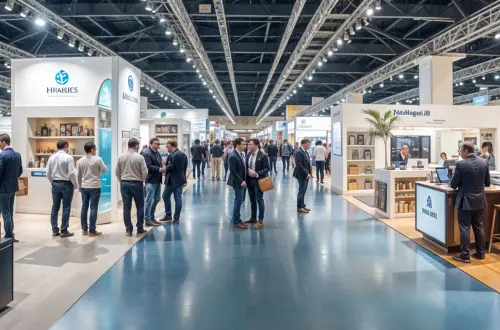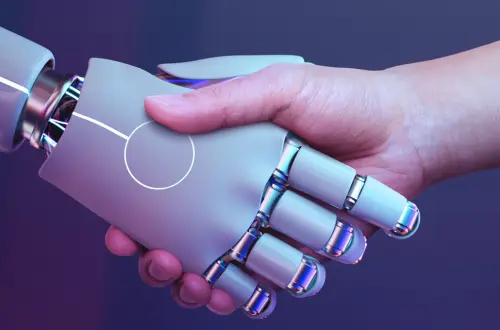Trade Fairs – What Is the Visitor Experience and Why It Matters?
As exhibitors, it’s easy to look at trade fairs as one-sided phenomena, where it only matters what you as the exhibitor have to provide, think and plan for in order to recoup their costs. But fairs are the place where supply meets demand, and we have a duty to explore what happens on the side of ‘demand,’ aka trade visitors. What is their experience in the role of free-moving agents within the exhibition centre and what drives their behaviour? It’s one of the key components in order to meet more prospective buyers and raise brand awareness.
How Do Visitors Reach the Trade Show?
Trade visitors often travel in smaller groups – you have two or three people from a single company who might travel together abroad or a larger team from a local company that travel domestically. A trip like this requires far fewer resources to be allocated, so there’s an amount of flexibility at hand. Nevertheless, the goal is ever the same – find hotel accommodation as close to the exhibition space so that there’s less of a commute. In some cases, they’d be walking or catch public transport, but look to reduce costs so not many will command the budget for a rent-a-car service.
This is important for exhibitors because it means they have limited space on their person to carry promotional materials and branded products. If you plan on hosting giveaways or handing out any freebies, make sure they are compact, purposeful or digital. You’ll win visitors’ affection and not take up space, which is their ultimate concern when they have to spend the rest of the day scouting the floor and then commute back.
How Do Visitors Move around the Trade Show?
This is where you need to pay attention to the layout of the sector, where your booth is going to be located. At exhibitions, space is divided into themed areas where direct competitors, as well as companies from related segments along the supply chain, are going to be positioned for maximum cross-sale potential. Trade visitors often do research based on product category they’re interested in buying and will naturally first head there (most trade visitors have decision making power where purchases are concerned) and this is where you need to enhance your trade show marketing with a smart ploy to stand out.
Discover whether there are any food and drink vendors near you? If not – you’re in an advantageous position to fill a niche that will definitely drive foot traffic your way. It’s a popular trend amongst exhibitors to incorporate socialization corners – a place to grab a drink or simply to sit down. The space devoted to sitting down and resting is limited, and if you’re one to have a relaxation corner, you may attract targeted visitors who will definitely stop and talk to you! Bonus points, if you can also offer snacks or simple meals.
What Does Visitor Do at the Trade Show?
Every trade show has a marketplace component, where trade visitors are definitely going to be an active force in scouting for new purchases for their companies, but they are also comprised of so many side events – lectures, keynote speeches, conferences, congresses, guided tours, workshops and discussions. Trade shows are the place where professionals come to learn where the industry is headed as all major research is shared and innovative products launched.
What this gives you as an opportunity is to identify the subjects that your ideal customer is going to be interested in. This is easily achieved, if you have a buyer persona/s for your customers – they will inform you where to look and how you can position yourself there to meet them. If there’s a guided tour option, check out how you can be featured as that’s a guarantee for steady foot traffic your way. Find out the interesting presentations and workshops you can attend either as part of the programming or simply an audience. That’s how you expose your brand to relevant visitors and it creates a good first impression that your brand is committed to innovations!
As you can see, there is much value to be gained as an exhibitor from knowing what visitors see and experience at trade shows.


